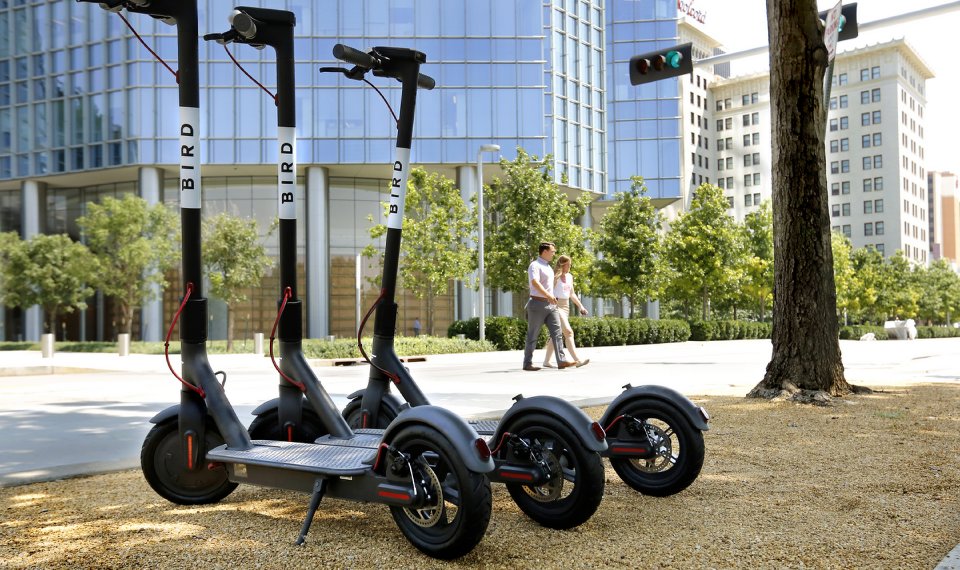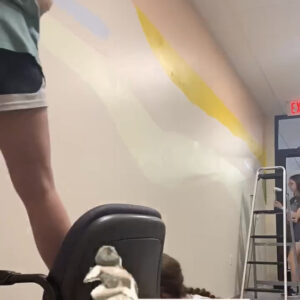Electric scooters have taken the country by storm, popping up in cities and most recently on college and university campuses. Oklahoma Christian University’s Student Government Association (SGA) is currently in contact with Bird and LimeBike to talk about bringing scooters to campus.
Riding the scooters can be a recreational activity, but they also offer an affordable way to travel short distances. They typically cost $1 to start plus 15 to 20 cents per minute and can reach a speed of 15 mph.
Bird and LimeBike are the two largest shared-scooter companies in the world, each valued at more than $1 billion. According to The New York Times, after the companies dropped thousands of electric scooters in cities, many city officials have sent cease-and-desist notices and held emergency meetings to discuss the implications of this form of transportation.
“Often, the companies ignored all the usual avenues of getting city approval to set up shop,” The New York Times said. “And, since the scooters are dockless, riders can just grab one, go a few blocks and leave it wherever they want, causing a commotion on sidewalks and scenes of scooters strewn across wheelchair ramps and in doorways.”
Oklahoma City recently received Bird scooters throughout the downtown area. Bird secured permits for 15 nests of five scooters each to avoid the Oklahoma City Council impounding the scooters. However, a proposed ordinance is set for adoption today, under which companies already offering scooters for rent will need to get a new license.
The new ordinance creates the Share Vehicle System License, which initially limits licensees to 250 scooters and sets an annual fee of $302 for the license, plus a $30 annual fee per scooter. Ordinances for riders already set in place, however, will not be affected.
Bird CEO and founder Travis VanderZanden wrote a “Save Our Sidewalks Pledge” on the Bird website, promising certain steps in preventing new problems in cities.
“We have an unprecedented opportunity to reduce car trips—especially the roughly 40 percent of trips under two miles—thereby reducing traffic, congestion and greenhouse gas emissions,” VanderZanden said.
The company pledges to pick up and repair its scooters every night to maintain a reasonable number of scooters in cities and to give $1 per vehicle per day to city governments for use in creating more bike lanes and promoting safe riding.
Scooters have not been limited to major cities and downtown areas. Bird recently launched a “University Pop-Up Tour” with the aim to introduce students and faculty to the scooters. With scooters already located in Norman and Stillwater, Oklahoma Christian could have electric scooters on campus in the near future.
According to a Twitter poll, in which 199 students participated, 76 percent voted they would ride an electric scooter at least once if they were available on campus.
If OC had electric scooters on campus (Bird, Lime, etc.), would you ride one at least once?
— Talon News (@OCTalon) September 24, 2018
Sophomore Sarah Parks said she and some friends went to downtown Oklahoma City to try Bird scooters two weeks ago According to Parks, the app was very easy to use and finding scooters was not difficult. She said she thinks the scooters could be a benefit to any college student who does not have a car.
“It would be a dream to have these on campus,” Parks said. “I would definitely ride them again, especially because I’m on campus most of the time. It would even be nice to have them in Edmond nearby, and then we could explore downtown without having to drive that far.”
According to Dean of Students Neil Arter, the SGA is meeting with Bird to talk about liability information and the logistics of bringing electric scooters to campus. He said LimeBike reached out to the school with scooters at first, but also with power-assisted bikes.
“If it works other places, it will work here,” Arter said. “I assume Oklahoma Christian students are no more clumsy than average college students. Our students, in general, tend to be very frugal with their money, so I don’t know if it will be worth it for them. It might be just cool enough for a while that people will use it.”


















Be First to Comment